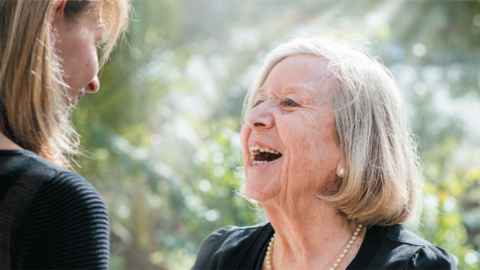ACCM Positive Ageing Network
We've partnered with Age Concern Counties Manukau Positive Ageing Network to develop a research agenda.

The predicted growth in the ageing population requires a foundation of well thought-out and evidence-based information in order to provide services, create communities and opportunities that enhance the lives of older people.
The network was established by Age Concern Counties Manukau (ACCM) in 2007. Members include: Access Healthcare, Alzheimers Auckland, Aphasia NZ Charitable Trust, Arthritis NZ, Auckland Council Housing for Older People, BUPA Care Services Ltd, Counties Manukau Grey Power, Driving Miss Daisy, East Health Trust, Enliven Counties Manukau, Geneva Healthcare, Habitat for Humanity Auckland, Healthcare NZ, Independent Living Service Charitable Trust (ILS), Kate McLean Homecare Ltd, Korean Positive Ageing Charitable Trust, Miranda Smith Homecare, NZ Fire Service, Safer Aotearoa Family Violence Prevention Network (SAFVPN), Selwyn Centres, Seniorline, Shanti Niwas Charitable Trust and St John.
According to Wendy Bremner (CEO Age Concern Counties Manukau), “Ageing is a matter that affects all of us, at an individual level and also at the level of society. Life expectancy is increasing at the rate of over two years per decade, and as the percentage of the population over 65 years is projected to double over the next 40 years, the need to prepare for these changes is both urgent and timely. Thirty percent of people aged over 65 live in Auckland and a third of those live in South Auckland. So even though South Auckland is seen as a young city we have high numbers of people over the age of 65 and this number is growing. Over the last six years the Positive Ageing Network has had a heightened awareness of the need to collaborate and think more strategically about the needs of older people and to recognise and identify the changing demands population ageing will have on the organisations working within this space. We want to understand how we can meet the changing needs of older people in South Auckland.”
In November 2015 the partnership resulted in a co-hosted World Café attended by 52 people representing 26 organisations. During an energetic and lively morning three research priorities were identified, including:
- Who is ageing well and how are they doing it? What can we learn from them?
- What are culturally informed approaches to ageing well?
- What can be done to improve safety and security?
In partnership, we continued to develop the research agenda and amplified the questions with the support of a summer scholar, Rebekah Preston, who recorded key voices in the positive ageing sector. The results confirmed and strengthened the agenda with the following items that will guide the Positive Ageing Network’s research priorities over the next year in partnership with the CARE initiative:
- Who are the people who feel safe in their communities and what is happening to create these conditions?
- What can we do to ensure the safety and security of older people and guard against policies that may increase vulnerability?
- How can we ensure that all the individual and collective cultural identities of our older people are respected and enhanced within their communities?